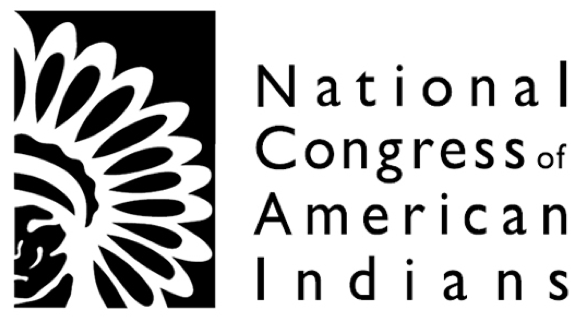
SACRAMENTO, Calif. – The National Congress of American Indians overwhelmingly voted to keep non-federally recognized tribes as full voting members of the 68-year-old organization.
The vote took place at a Constitution Convention during NCAI’s 69th Annual Convention October 22-26 held this year in Sacramento. Nine amendments were proposed to the organization’s Constitution, Bylaws and Standing Rules. The membership accepted eight amendments and rejected one. The most controversial was a proposal to limit NCAI tribal membership to federally recognized tribes and exclude state recognized tribes from voting membership.
The media were excluded from the Constitutional Convention, which took place Thursday, October 25. However, according to Larry Townsend, Veterans Service Officer of the Lumbee Tribe of North Carolina, and southeast regional vice president of NCAI, the proposal was defeated by a vote of approximately 390 to 20.
“This was a victory for all of Indian country,” Townsend said, following the vote. Townsend, Rev. John Norwood, tribal council member of the Nanticoke Lenni-Lenape Tribal Nation and Frank Ettawageshik, former chair of the Little Traverse Bay Bands of Odawa Indians – all three are members of NCAI’s Federal Recognition Taskforce – opposed the measure.
“It was a historic vote,” Norwood said. “There were some who had a misguided and misinformed position and they tended to be the loudest voices on this issue and in circulating information, but obviously what we saw (in the vote) was the silent majority of people who understand what the organization was about when it was established and who understand that we have to come together and it was a real blessing to see that support.”
Ettawageshik said that congratulations were due to all of the NCAI members who voted to support inclusiveness. “NCAI members voted overwhelmingly to support all of the tribes and to revitalize the energy with which NCAI was originally created. We were just part of the process. Even though we did a lot of work, this would have happened anyway. It vindicates the vision we held, but this is a win for all the tribes,” Ettawageshik said.
The proposal to exclude state-recognized and non-state recognized tribes as voting members was proposed by Kerry Holton, the former president of the Delaware Nation of Anadarko, Oklahoma, who was removed from office by a vote of the nation’s executive committee June 21. Holton said state-recognized tribes are starting to receive more of the funding “pie”—the government aid intended for federally recognized tribes. Just days before he was removed from office, Holton posted an entry called “Recognition in Vain” on his blog. He claimed that states which “typically” don’t have federally recognized tribe – because the indigenous tribes have been eliminated by the state – are creating “spurious Indian recognition processes which defy the United States Constitution.” He said states were recognizing tribes “with no legitimate claims” in order “to tap federal funds/programs designed and budgeted for Federally Recognized tribes through treaties, concessions and court cases.” He said recognizing these faux tribes would boost revenues for the state through powwows and sales of Indian art and would “gain political points/voting blocks for state legislators that sponsor illicit recognition legislation,” among other claims. Holton could not be reached for comment for this story.
NCAI President Jefferson Keel appointed a five-member Constitutional Committee in 2011 to review proposed amendments to the Constitution and make recommendations. Discussions were held with tribal leaders during the organization’s meetings throughout 2012 and at the annual convention before the Constitutional Convention took place. The committee urged a “no’ vote on the amendment to exclude non-recognized tribes as voting members. “NCAI has always been an inclusive organization that advocates for interests of all Indian tribes and Indian people. In addition, this proposed change would put the power of recognition exclusively in the hands of the federal government,” the committee wrote in a briefing paper.
The committee also recommended approval of an amendment to NCAI’s bylaws that creates rules to ensure that state recognized tribes meet certain criteria and also to allow NCAI regional caucuses to sponsor the membership of tribes in states that do not have a tribal recognition process or in which the status of state recognition is unclear. This proposal creates an even more progressive and inclusive process of recognition for non-federally acknowledged tribes than NCAI previously had and it was approved by the membership.
“The regional caucus will go to the area where the tribe is located and talk to all the people, investigating the tribe’s history and whether they are who they say they are and that will start them up the ladder to NCAI membership,” Townsend said.
Until now, the decision whether or not to accept a tribe for membership has been left up to the NCAI staff to deal with, Ettawageshik said. “This has been a problem for NCAI staff. They’ve been left on their own to deal with these issues without bylaws or guidelines in the Constitution. So now we have an expanded, clarified process that we didn’t have before.”
The amendment also underscores the inherent sovereignty of all American Indian tribes, Norwood said. “It affirms the fact that we’re not merely defined by the federal government or the state, that we can define ourselves, that tribes can recognize one another,” he said.